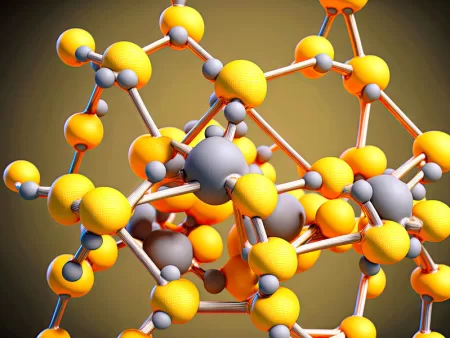
Are you ready to unlock the secrets behind the world’s most popular energizer and turn it into your ally for weight management and enhanced physical performance?
Imagine enhancing your focus, reducing fatigue, and supercharging your exercise routine with just a timely sip. Discover the competitive edge it offers against adenosine, a key neurotransmitter in your brain. This isn’t just about a temporary boost. It’s about leveraging a biochemical strategy to rev up your energy levels and metabolic engine, making every workout count and steering your weight loss journey in the right direction.
Unraveling Caffeine’s Secrets
Caffeine in our bodies is a key part of the weight management puzzle. The basis of its influence is its interaction with the inner workings of the brain and body. It gains its effectiveness due to its competitive advantage over the neurotransmitter adenosine. Typically, during the day, adenosine accumulates, causing a state of drowsiness, by attaching to receptors in the brain.
Caffeine’s Clever Maneuver
Enter caffeine, and the game changes. Caffeine mimics adenosine’s structure, tricking our brain by docking onto adenosine’s receptors without activating them. This action prevents adenosine’s normal slowdown of neural activity, leading to a surge in neuron firing. The body interprets this surge as a call to action, releasing adrenaline, which pumps us up with energy. Moreover, caffeine’s blockade boosts dopamine and norepinephrine levels, enhancing alertness and improving mood.
The Energy Boost and Metabolic Kick
This sequence of actions sparked by caffeine has direct implications for those seeking weight loss. The adrenaline rush and uptick in neurotransmitter activity not only sharpen mental focus but also invigorate physical activity desire. More activity translates to more calories burned. Furthermore, the metabolic rate gets a nudge from caffeine, meaning calories are burned more efficiently, aiding in fat loss even during periods of inactivity.
Leveraging Caffeine for Weight Loss
Grasping these insights into caffeine’s mechanism allows for strategic use in weight management efforts. The blend of mental alertness and physical energy it provides can be a catalyst for maintaining exercise routines. The enhanced metabolic effect signifies that the body becomes more adept at utilizing fat for energy, supporting weight reduction goals. However, individual responses to caffeine vary, making it essential to consider personal health and sensitivity to caffeine when incorporating it into a weight loss strategy.
Elevating Exercise with Caffeine’s Touch
- Caffeine’s Role in Exercise Perception: At the heart of caffeine’s benefit is its ability to alter how hard we feel we’re working. It’s not about making the workout objectively easier; rather, it changes our perception, enabling us to endure more and push our limits. This perceived reduction in effort means that activities like running, cycling, or weightlifting can be sustained for longer periods, maximizing calorie burn and enhancing endurance.
- The Fuel Switch: Caffeine’s Biochemical Impact: Caffeine orchestrates a subtle shift in our body’s energy dynamics. By promoting the use of fatty acids for energy, it conserves glycogen stores tucked away in our muscles. This shift not only supports longer bouts of physical activity but also taps into fat reserves, contributing to more effective weight management. It’s like caffeine nudges your body to prefer fat as a fuel source, keeping your energy levels steady and robust throughout your workout.
- Strategic Caffeine Use for Weight Management: For individuals targeting weight loss, caffeine’s ability to boost exercise performance is invaluable. Integrating caffeine with a balanced, calorie-conscious diet sets the stage for optimal weight reduction. This dual approach ensures you’re not only burning more calories through enhanced physical activity but also mindful of your nutritional intake, striking a critical balance for shedding pounds effectively.
- Optimizing Workout Results with Caffeine: To harness caffeine’s full potential in your workout regimen, attention to timing and dosage is crucial. A moderate amount of caffeine about half an hour before exercise can significantly amplify its positive effects on performance. It’s essential, though, to tailor caffeine intake to your personal tolerance levels to avoid any adverse effects that might compromise your exercise experience.
Understanding Caffeine’s Flip Side
Caffeine, for all its perks in boosting energy and aiding weight loss, comes with a cautionary note. When consumed in large amounts, it can have less-than-desirable effects on our health. The drawbacks of excessive caffeine intake range from sleep disturbances to a noticeable uptick in anxiety levels, each capable of derailing your wellness journey.
- The Sleep Conundrum: One of caffeine’s most common side effects is insomnia. Caffeine’s energy-boosting properties can backfire when consumed late in the day, making it hard to wind down and get a restful night’s sleep. Poor sleep doesn’t just leave you feeling groggy; it can affect your metabolism and hunger hormones, leading to increased appetite and potentially sabotaging your weight loss efforts.
- Heart Health and Anxiety: Moreover, caffeine stimulates the nervous system, which can cause your heart rate to accelerate. For some, this results in a feeling of being on edge or jittery. In more sensitive individuals, this heightened state can spiral into anxiety or panic attacks, conditions that are not only distressing but can also hinder the motivation required for regular exercise and healthy eating.
- Digestive Discomfort: Then there’s the impact of caffeine on the digestive system. Some people may experience upset stomachs, acid reflux, or other gastrointestinal issues as a result of too much caffeine. This discomfort can detract from daily activities and diminish the quality of life, making it harder to stay on track with diet and exercise plans.
Forms of Caffeine Consumption for Weight Loss
Caffeine is widely recognized not just for its ability to enhance alertness but also for its potential role in aiding weight loss. Its stimulating properties can increase metabolic rate and enhance fat burning processes. Here are several forms of caffeine consumption that can be beneficial for weight loss:
- Coffee. The most popular way to consume caffeine. A standard cup of black coffee contains about 95 mg of caffeine. It can help increase metabolism and reduce appetite, especially if consumed without added sugar or milk.
- Green Tea. Not only does it contain caffeine (about 20-45 mg per cup), but it is also rich in antioxidants, including epigallocatechin gallate (EGCG), which may aid in fat burning.
- Energy Drinks. Many of these contain a significant amount of caffeine, ranging from 50 to over 300 mg per serving. However, it’s important to be cautious with energy drinks, as they can also contain high levels of sugar and other stimulants. Opting for sugar-free versions can be a better choice for weight loss.
- Caffeine Pills or Supplements. These products provide a controlled dose of caffeine without additional calories. They can be an effective way to boost metabolism and energy levels, particularly for those who prefer not to drink coffee or tea. However, it’s crucial to follow recommended dosages to avoid potential side effects.
- Yerba Mate. A traditional South American beverage that contains caffeine along with other nutrients. It offers a unique alternative to coffee and tea, providing about 30-40 mg of caffeine per cup. Yerba mate can also stimulate the metabolism and has been associated with various health benefits.
- Dark Chocolate. While it contains less caffeine than other sources (about 12 mg per ounce), dark chocolate also offers antioxidants and can be a satisfying, low-calorie treat that helps curb cravings.
Incorporating these caffeine sources into a balanced diet and exercise regimen can enhance weight loss efforts. However, it’s essential to moderate intake and consider individual tolerance to caffeine to avoid adverse effects.
The best time to consume it
Fine-tuning the schedule for your energizing beverages, be it morning coffee or an afternoon energy shot, plays a crucial role in amplifying their effectiveness for enhancing physical performance and aiding in weight control. The strategy goes beyond merely seeking a quick lift; it involves aligning consumption with your physiological rhythms and lifestyle activities, ensuring energy peaks when needed while minimizing the risk of sleep disruption.
Strategic Energizer Timing Pre-Activity
To maximize the benefits during physical endeavors, it’s advisable to take your energizing drink between 30 to 60 minutes before starting your exercise. This timing is designed to synchronize the stimulant’s maximal effect with your activity, boosting alertness, reducing perceived effort, and allowing for an intensified and prolonged workout. Given the variability in individual reactions, tweaking this timing may be necessary to align with your specific metabolic response.
Morning Energization vs. Afternoon Boost
A morning dose of your preferred stimulant can complement the body’s higher metabolic activity, promoting increased calorie burning and prolonged vitality. This approach supports more vigorous daily activity and dovetails with goals for weight management. For afternoon exercisers, it’s critical to manage intake timing to avoid affecting nocturnal rest. Instituting a no-later-than mid-afternoon rule for your last stimulant consumption is prudent, particularly for those more susceptible to its effects.
Limiting Late Afternoon and Evening Intake
Preserving sleep quality, a pillar of health essential for muscle recuperation and hormonal equilibrium, necessitates avoiding stimulants as the day wanes. Disruptions in sleep can reverse the positive impacts, leading to increased fatigue and hunger. Establishing a firm deadline for your final stimulant intake can strike a balance, leveraging the benefits of enhanced wakefulness without sacrificing the rejuvenative power of sleep.
Tailoring Intake to Individual Physiology
The most effective stimulant scheduling is personalized, reflecting your tolerance, exercise intensity, and nutritional patterns. By monitoring your body’s response to stimulant intake at various points in the day and adjusting accordingly, you can optimize its energizing effects. This attentiveness allows you to employ the stimulant as a tool for fitness and weight management success, ensuring it contributes positively to your health and lifestyle.
Conclusion
By counteracting the effects of adenosine, caffeine improves mental clarity and physical endurance, serving as a powerful ally in fitness and weight loss efforts. Optimal planning of your intake improves training performance and metabolic efficiency, which is critical for improving calorie and fat burning. Tailoring its consumption to individual health and sensitivity profiles ensures effective use of its full range of benefits. Judicious use of caffeine, with timing and quantity, mitigates side effects while promoting quality sleep and emotional well-being. A synergistic strategy combining caffeine with a nutritious diet and consistent physical activity lays the foundation for successful weight management.
FAQs
It aids weight loss efforts by speeding up the body’s metabolism, increasing vitality for increased physical activity, and potentially reducing appetite, all of which helps reduce overall calorie intake.
To take full advantage of the energy benefits of caffeine for fitness, it is recommended to consume it 30-60 minutes before the start of your workout, thereby ensuring maximum mental acuity and endurance.
Indeed, its effects can vary widely depending on a person’s specific health characteristics, genetic predisposition, and caffeine tolerance level, requiring individualized consideration of caffeine consumption.
Despite its benefits, excessive caffeine consumption can lead to a number of unwanted effects, including disrupted sleep patterns, increased heart rate, anxiety symptoms, and stomach problems. Practicing moderation and strategic timing are essential to mitigating such effects.







